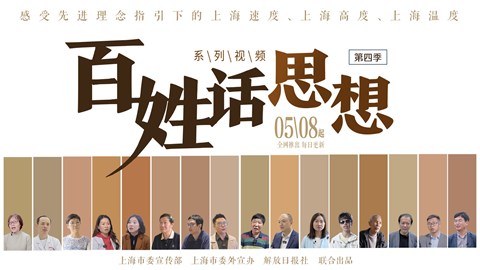China's changes through eyes of expats in academia

Francesca Ran Rositudottir, a first-year doctoral student of the School of International Relations and Public Affairs, Fudan University.
When Francesca Ran Rositudottir, a student from Iceland, came to Shanghai in 2014 on an exchange, she knew she would return.
"I was so blown away by its brilliance, and that's why I'm here again," said Rositudottir, now a first-year doctoral student at the School of International Relations and Public Affairs, Fudan University.
Rositudottir, who is from an Icelandic-Chinese family, wasn't too impressed when she first came to China to study in a middle school in Kunming in Yunnan Province.
"When I was there, the first Starbucks had just opened, but now they are everywhere," she said. "It's a mirror of China's fast development over the years."
China has gone from a regional power to a global power and has been contributing to the world economy with initiatives such as the "Belt and Road," she said.
The country's strong leadership was evidenced by its efficient reaction to COVID-19, said Rositudottir, who stayed in China throughout the pandemic.
"My parents advised me to return to Iceland at the end of January last year, but I assured them that it would be safer for me to stay in China, and I was not wrong," she said.
Rositudottir said she hopes to become a link between Iceland and China.
Cosimo Bambi, a physics professor at the university, resumed his career in China eight years ago after three years in Japan.
"When I first arrived here, the government focused on quantity more, but now it focuses on quality," he said.
As a researcher in high energy physics, Bambi said he had received a lot of support from both the university and the government and said the research environment in Shanghai was encouraging.
"The government puts high emphasis on higher education, and there are many opportunities for young people," he said.
In terms of the EU-China relations, Bambi said there had already been a lot of academic collaboration between the two sides, but he was concerned about misunderstandings between Europeans and Chinese.
"I think the problem is more from the European side, and I hope there will be more communication between the two sides," he said.
Rositudottir and Bambi were attending the event "Shanghai's achievements in practicing Xi Jinping's Thought on Socialism with Chinese Characteristics for a New Area: A Special Thematic Dialogue" from a conference hall at Fudan University on Wednesday night with 27 fellow students and faculty members and university officials.
The event, held by the International Department of the Central Committee of the Communist Party of China and the Shanghai Committee of the Party, gathered over 740 guests from about 100 countries both online and offline.

Students and faculty members and officials of Fudan University who attended the event from a conference hall at the university on Wednesday.















